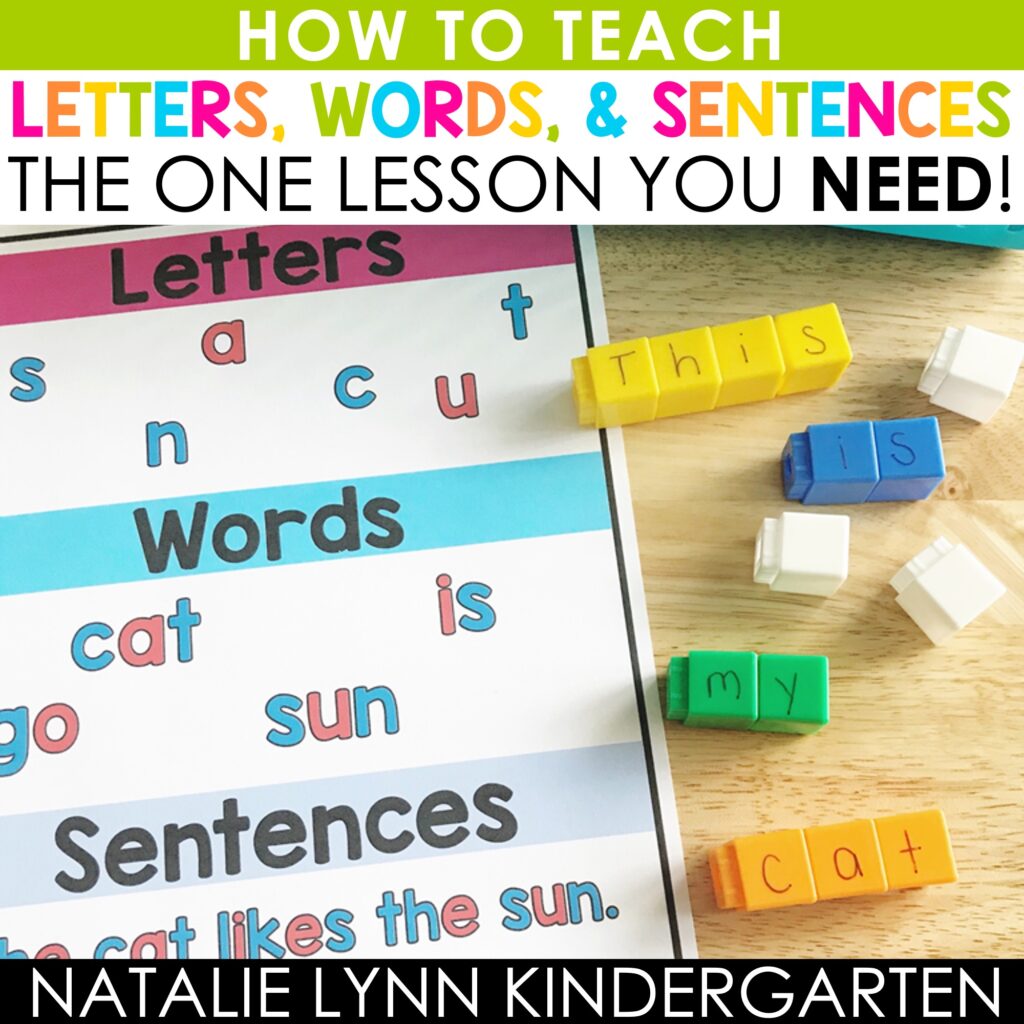
If you’ve been in a kindergarten classroom for any length of time, you know that you’ll be teaching the concepts of print to your little learners throughout the school year. One of the concepts of print that we must teach our students to distinguish between is letters, words, and sentences.
In this post, I share my tips for teaching this concept and helping your students master it!
How Not To Teach Letters, Words, and Sentences

I’ve seen so many teachers make this anchor chart. And if it’s currently hanging in your classroom, don’t worry! I’ve had it hanging in mine before too!
The problem is that we often treat this chart as the lesson. We sort the letters, words, and sentences with students and expect them to remember the difference.
The problem? They often don’t remember. That’s because this chart is the follow-up to a lesson, not the lesson itself.
We haven’t really taught anything.
The Only Lesson You Need To Teach Letters, Words, and Sentences
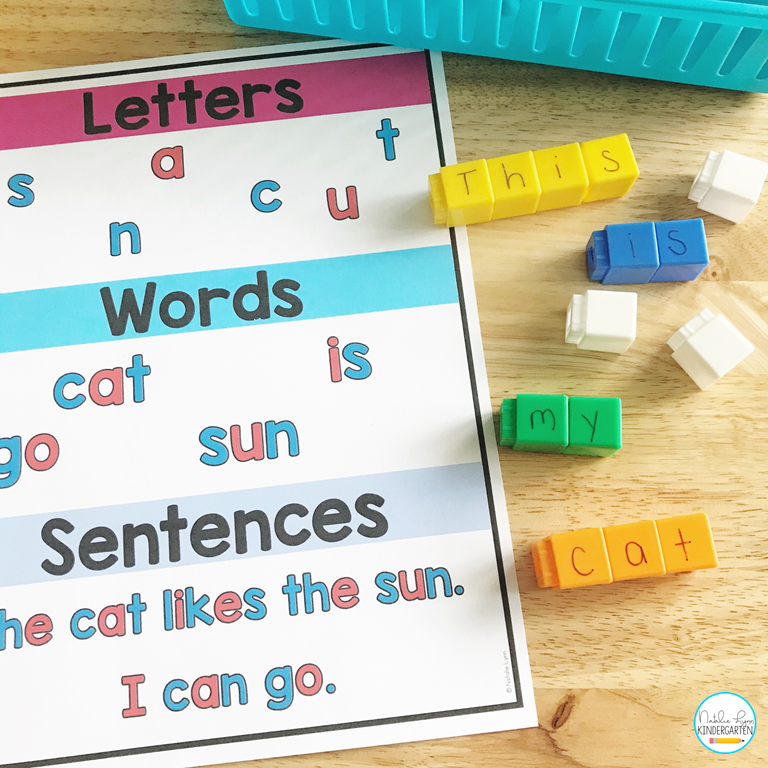
To effectively teach the difference between letters, words, and sentences, it’s not super complicated. All you need to teach is just one lesson. The lesson that I like to teach can be found in my Little Readers Kindergarten September unit. Once you teach it, the anchor chart we talked about above will hold some meaning!
Here’s what you’ll need to get started:
- Unifix Cubes – use a marker to write the words “This is my cat” with one letter on each cube.
- A Basket
- Letters, Words, and Sentences Anchor Chart
- Sentence strips with examples
Below I share how to teach the lesson from my Little Readers Kindergarten September unit!
Introducing Letters
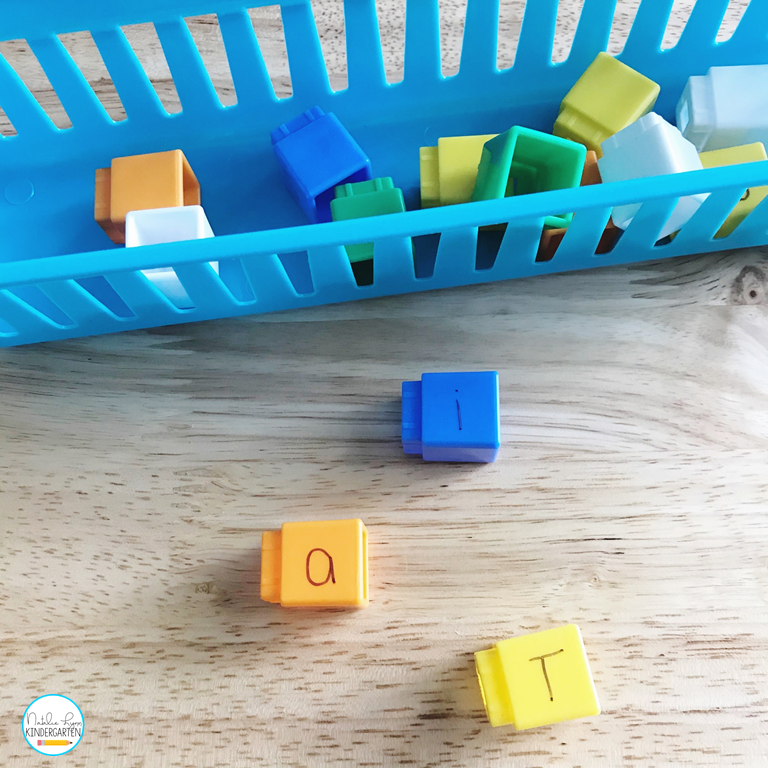
Because a letter is the smallest unit of print that our students interact with, it’s what we need to begin with. To help my students understand what a letter is, I like to explain that letters are like building blocks. Individually, letters are the smallest pieces. However, they LOVE to join together to build something bigger!
Introducing Words
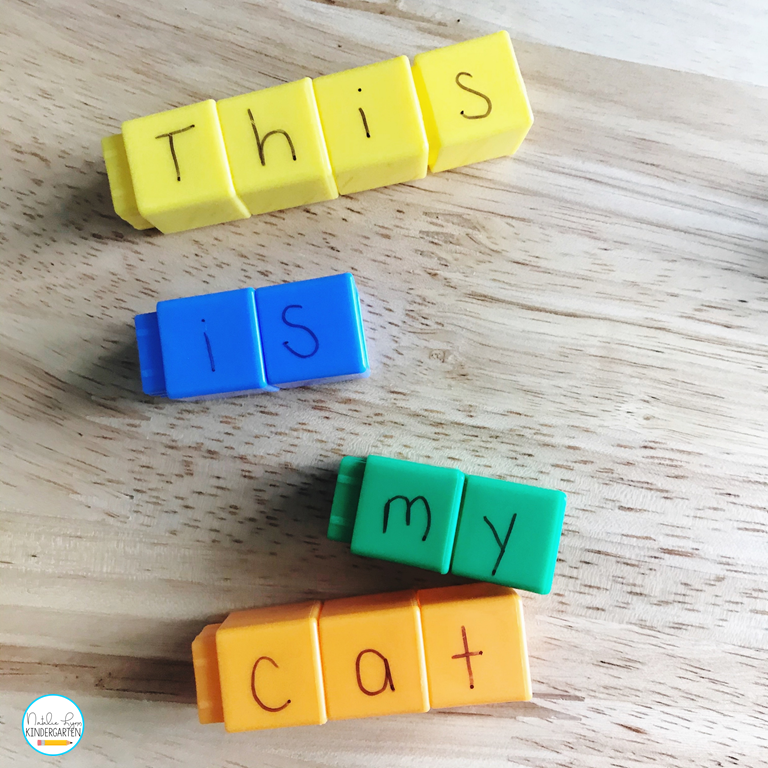
When letters join together, they can build a word! Letters love to build words and there are millions of words that they can build.
But do you know what? Words like to build too. When words connect, they can build something even bigger.
Introducing Sentences
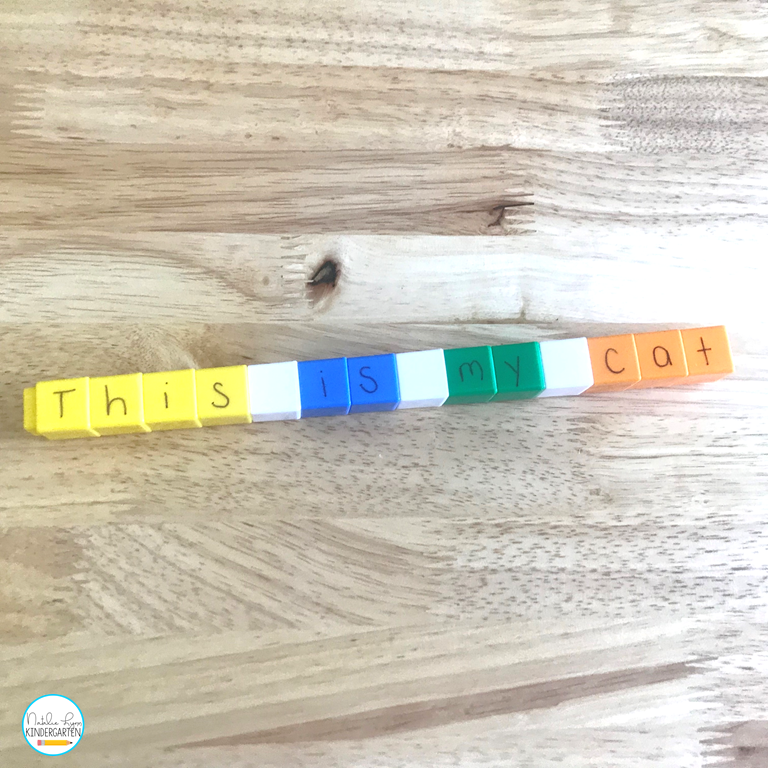
When words connect, they can build a sentence! Students will be amazed to see how the pieces all come together.
I use blank cubes for the spaces and explain that the spaces are like glue or cement between bricks. Don’t worry about teaching punctuation yet – too much information and your lesson will lose its purpose.
Creating Your Letters, Words, and Sentences Anchor Chart

Now that you’ve actually taught your students the difference between a letter, word, and sentence, you can move on to creating the anchor chart we talked about above with your class.
I recommend having the strips you want to use already cut up and in a basket. Pull one out at a time and have students help you put it in the correct spot on the anchor chart.
Then, have your students follow up by cutting and sorting letters vs. words vs sentences with a partner.
Letters, Words, and Sentences Song
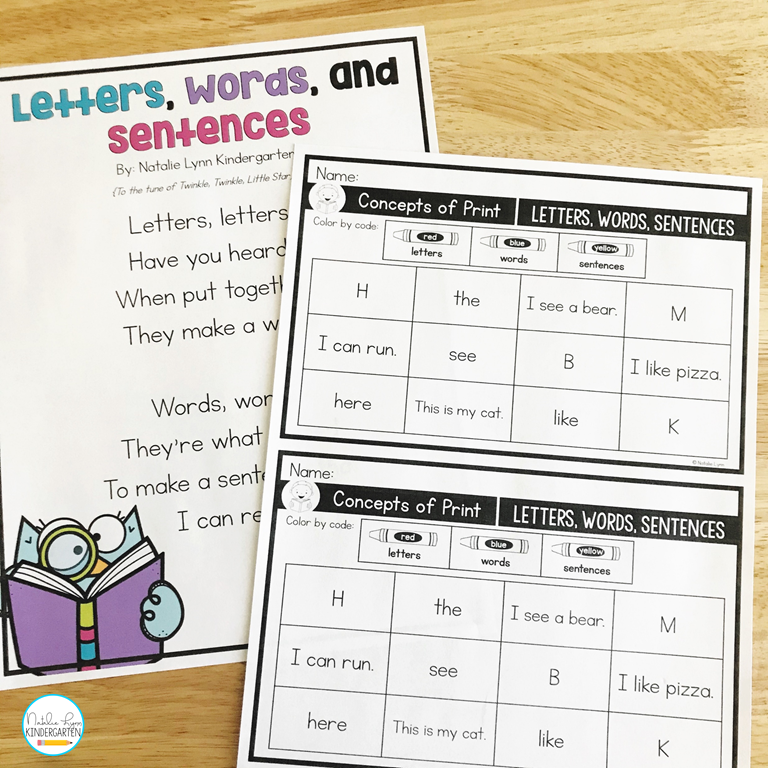
After sorting, I teach students the Letters, Words, and Sentences song. We sing this every day for a week or two.

Want engaging reading activities for the entire year?
This lesson was from Little Readers Kindergarten September. The Little Readers Kindergarten Reading Curriculum has daily concepts of print or phonemic awareness lessons already planned out for you as well as engaging close read lessons, vocabulary lessons, writing, and crafts. Get the Little Readers Curriculum for the year here!


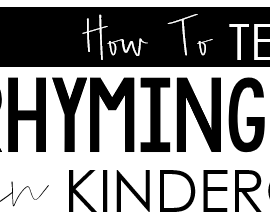
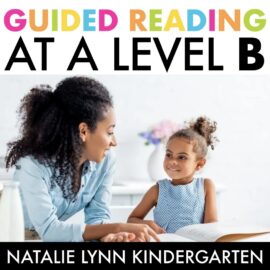
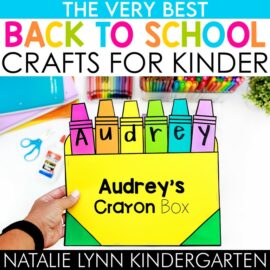
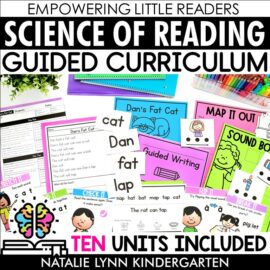
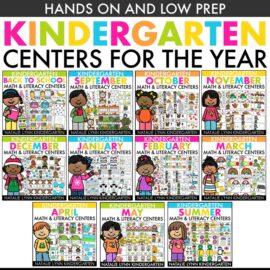
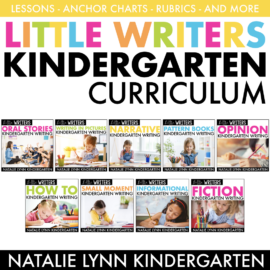
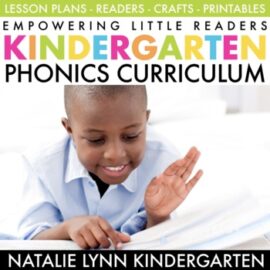
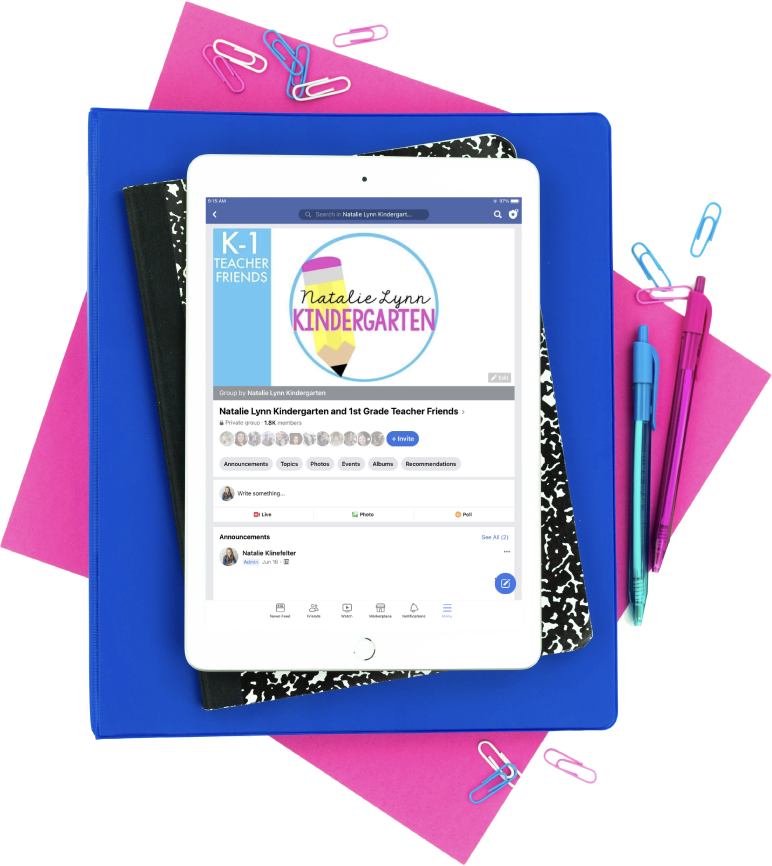

I love this lesson! I start to introduce this in PreK and having the visuals, manipulatives and songs are awesome! Thank you!
Thank you, Shannon! I’m glad you enjoyed it!
This is great and makes so much sense. I have a question about the cubes. Do you do that and show the students, or do you give groups of students cubes to see the letters and then you all put them together?
I do it and show the students 🙂
I have been searching for a good way to teach this. This makes so much sense. Thank you!
It is an awesome idea! thank you so much.